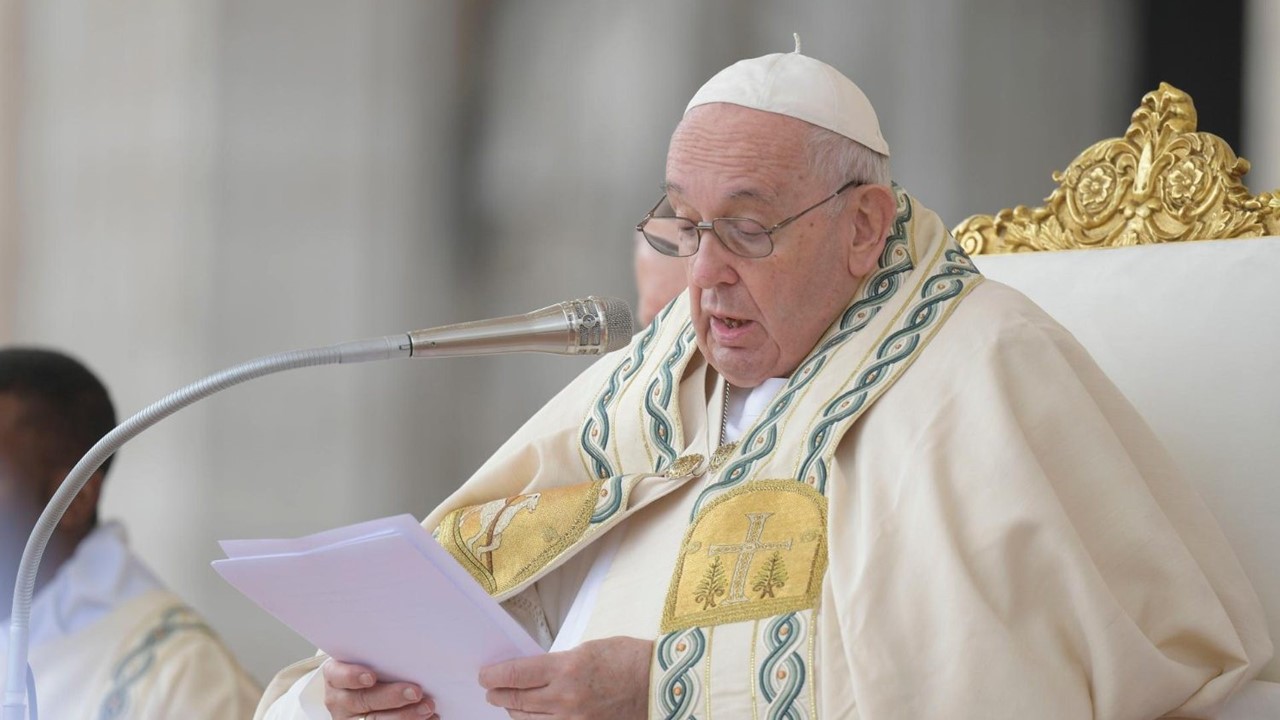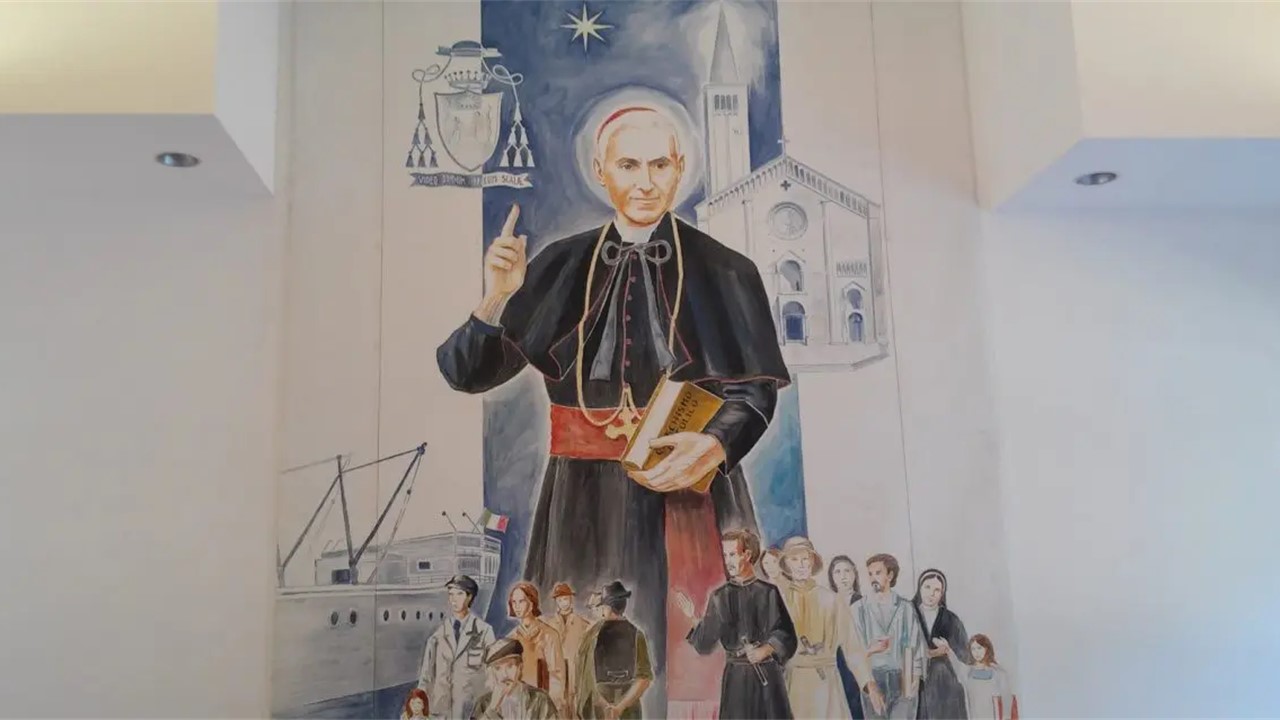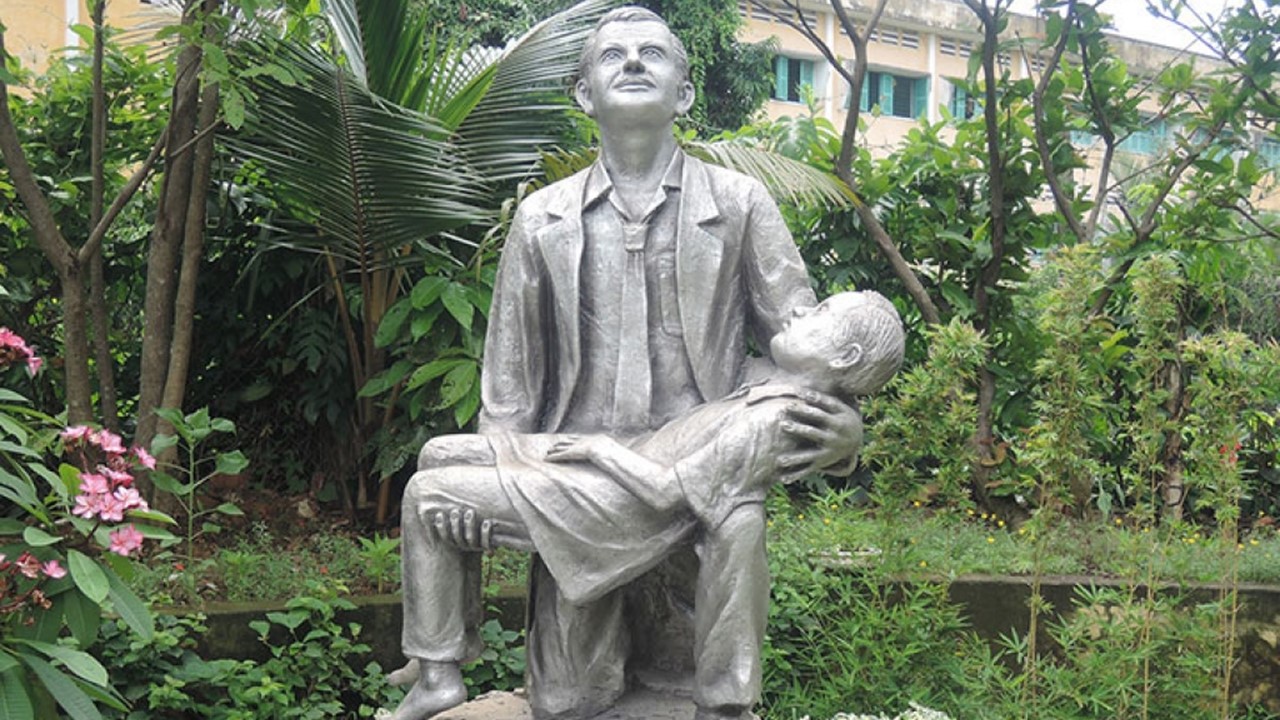Vatican City - The Catholic Church is blessed with two new saints today. Pope Francis canonised Bishop Giovanni Battista Scalabrini and Salesian Brother Artemide Zatti and elevated them to Sainthood in Saint Peter's Square on Sunday.
The beatification Mass was co-celebrated by Cardinal Marcello Semeraro, Prefect of the Dicastery for the Causes of Saints, which saw the participation of fifty thousand faithful.

Two holy men of faith
Recalling the examples of the two newly-named Saints, Pope Francis said each of these two holy men reminds us “of the importance of walking together and being able to give thanks.”
Both dedicated their lives to a Church that was inclusive and without barriers, as Saint Scalabrini cared a great deal for migrants and Saint Zatti cared greatly for the sick, taking upon himself the wounds of others.
The two saints were both born in Italy in the 19th century and ministered to others amid the massive emigration of hundreds of thousands of Italians each year at the turn of the 20th century.
Saint Scalabrini is known for founding a missionary order that ministered to immigrants, while Saint Zatti was himself an immigrant, leaving Italy for Argentina with his family in 1897 at the age of 16.
Saint Giovanni Battista Scalabrini (1839–1905)
 A native of the Italian region of Lombardy, Scalabrini was ordained a priest in 1863 and made bishop of Piacenza at the age of 36. As bishop, he founded the Missionaries of St. Charles Borromeo (also known as the Scalabrinians). He also created the lay “Saint Raphael Association,” which, like the order he founded, was dedicated to offering pastoral care to immigrants at the ports where they embarked and disembarked at the turn of the 20th century.
A native of the Italian region of Lombardy, Scalabrini was ordained a priest in 1863 and made bishop of Piacenza at the age of 36. As bishop, he founded the Missionaries of St. Charles Borromeo (also known as the Scalabrinians). He also created the lay “Saint Raphael Association,” which, like the order he founded, was dedicated to offering pastoral care to immigrants at the ports where they embarked and disembarked at the turn of the 20th century.
In 1901, he visited his missionaries in the United States and was received at the White House by President Theodore Roosevelt.
Scalabrini was convinced of the need for institutions to accompany the journey of migrants in all its stages. After returning from visiting his missionaries in Brazil, Scalabrini died in 1905 on June 1 — a date that the Church now marks as his feast day.
The saint is also remembered for founding a diocesan newspaper, for caring for the poor and elderly, for being a promoter of eucharistic adoration, and a protector of correct liturgical chant.
Scalabrini wrote: “Precisely because of the migrations imposed by persecutions, the Church pressed beyond the confines of Jerusalem and of Israel and became ‘catholic’; thanks to the migrations of our own days, the Church will be an instrument of peace and of communion among peoples.”
Saint Artemide Zatti (1880–1951)
 Zatti was born into extreme poverty in Italy in 1880. At the age of 9, he was already helping his parents by working as a farmhand before his family emigrated to Argentina.
Zatti was born into extreme poverty in Italy in 1880. At the age of 9, he was already helping his parents by working as a farmhand before his family emigrated to Argentina.
As a young man, Zatti attended a Catholic parish run by the Salesians of Don Bosco in the Argentine town of Bahía Blanca. At 20 years old, he joined the candidacy to become a Salesian priest.
While living in the Salesian community, Zatti contracted tuberculosis after caring for a young priest with the disease.
One of the Salesian priests, a nurse, suggested that Zatti pray for the intercession of Mary Help of Christians, making a promise that if he was healed, he would devote his life to helping the sick, which Zatti willingly made.
However, the young Italian immigrant gave up the idea of the priesthood and became a Salesian Coadjutor Brother, a lay role so that he could devote himself to service in the medical field.
In 1915, at the age of 35, Zatti became the director of the Salesian-run hospital in Viedma, a city in central Argentina. Two years later he also became the manager of the pharmacy and received his license as a professional nurse.
He not only worked in the hospital but also travelled to Viedma and Carmen de Patagones to treat people in need, and his reputation as a saintly nurse spread throughout that area of Argentina.
Zatti always saw Jesus in each of his patients. Some people even recalled seeing him carry the body of a patient who had died during the night to the mortuary as he recited the De Profundis, a prayer for the dead which comes from the text of Psalm 130.
People who knew him said that Zatti carried out his service to the sick with heroic sacrifice and that he radiated the light of God, even bringing some unbelievers to faith.
In 1950, after falling from a ladder, Zatti began to show signs of liver cancer. He continued to work, but on March 15, 1951, at the age of 70, he died from the disease.
He is the first Salesian coadjutor to be declared a saint. His feast day will be celebrated on Nov. 13.
-CNA/VN